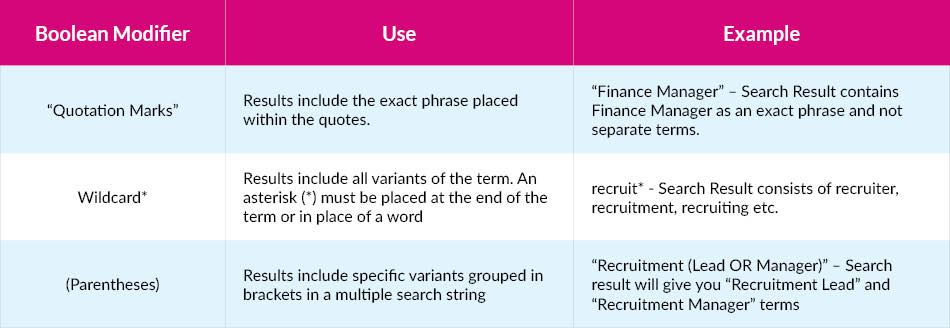Topics:
A Guide to Talent Sourcing for Recruiters
Posted on June 08, 2022
Written By QX Global Group

Finding top talent in a competitive market is no small feat. For recruiters, simply posting job listings and waiting for candidates to apply isn’t enough anymore. This is where Talent Sourcing comes into play—a proactive approach to identifying and engaging the right candidates for your talent pipeline.
In this guide, we’ll walk you through everything you need to know about talent sourcing for recruiters, including strategies, challenges, and methods to overcome them. Whether you’re building a sourcing team or refining your strategy, this guide offers actionable insights to excel in your hiring efforts.
What is Talent Sourcing?
Talent sourcing is the first step of the recruitment process, where recruiters actively search for and engage potential candidates to build a strong pipeline for current or future job openings. Unlike the broader recruitment process, which includes interviews and hiring, talent sourcing for recruiters focuses solely on identifying and attracting talent.
Sourcing specialists, or talent sourcers, use tools such as ATS systems, social media, and Boolean searches to find both active and passive candidates. To stay effective, they must go beyond outdated methods like cold calls or bulk emails, instead adopting a proactive, empathetic approach that builds genuine connections—especially with passive candidates, who make up 70% of the global workforce.
In today’s digital landscape, delivering a positive candidate experience has become essential, as sourcers navigate a highly competitive talent sourcing for recruiters marketplace. However, this battlefield comes with its own set of challenges, requiring strategy, adaptability, and innovation to succeed.
Read Blog – Candidate Sourcing’s Impact on Time-to-Fill and ROI in Recruitment
Challenges in Talent Sourcing
The common challenges recruitment and sourcing experts face are as follows:
- Lack of adequate job information
- Disconnect with the hiring manager
- Lack of candidates in the talent pool
- Hard-to-fill roles
- Severe lack of quality in applicants
- Poor recruitment budget
- Unable to engage with the right candidates
- Competition from rival businesses
- Lack of knowledge of diverse online sourcing channels
- Severe lack of time to find the right talent
- Prolonged time to hire
- Inability to measure performance and results
- Failure to provide helpful candidate experience
- Inefficient recruitment structure and process
Addressing these issues requires a well-planned talent sourcing strategy tailored to your industry and roles.
Common Talent Sourcing Mistakes
The most common mistakes recruitment and sourcing experts make are as follows:
- Skipping the formation of a talent sourcing strategy
- Ineffective or insufficient engagement with candidates
- Overselling or selling a bit too hard
- Not following a human, high-touch approach
- Not preparing a communication strategy in alignment with the hiring manager
- Over-analysis of resumes
- Inefficient search
- Poor job description
Here’s a detailed piece on 8 Common Talent Sourcing Mistakes You May Still be Making in 2022
So, how to overcome these challenges? How do you win this battle? This guide will tell you everything we teach our talent sourcers about sourcing and prepare them for action.
A Step-by-Step Guide to Talent Sourcing
1. Prioritize Candidate Experience
Providing a positive candidate experience was a bonus add-on in the past, but that is no longer the case. It has become one of the most fundamental requirements in the recruitment industry. If you are making a call, don’t sound like a robot. Listen to what they say, understand their expectations, and identify if they match your offering.
Positive candidate experience can go a long way in building trust and garnering company advocacy. How would this help you, you ask?
- According to an IBM report, the probability of accepting a job offer is 38% more for applicants satisfied with the candidate experience.
- The same report states that even if applicants don’t get an offer, they are more than twice as likely to endorse the recruitment agency in their network.
- Candidates who don’t get a job offer would be 80% more open to applying again in the future if they had a good experience.
- According to Deloitte, 87% of candidates changed their minds about the company they had doubts about after an excellent recruitment experience.
It isn’t that hard. Just be humane in your approach, and you’re good to go!
Also Read- Stop Waiting for Qualified Candidates to Apply: Try These Active Sourcing Methods
2. Make sure you are on the same page as your hiring manager
We ask our recruiters to take the following steps to ensure there is no disconnect with the hiring manager:
- Set up a kick-off meeting with the relevant hiring manager as soon as you receive the job requirements. Make sure you understand the nitty-gritty of the role, which includes candidates’ experience, skills, education, and any other ‘must-have’ or ‘good-to-have’ qualifications.
- Take the hiring manager’s insights while building sourcing channels as they may know where the ideal hire may have a presence. For example, a perfect designer can be found on Behance.
- Review a couple of resumes together to identify that purple squirrel.
- Dive into the talent pool to gauge the number of job seekers in the market that match the client requirement. Ascertain if the conditions need to be relaxed or tightened based on the number of available talent in the market. For example, the manager might consider applicants who may not be working at the required position but possess the skills and experience to perform at that level.
- Adopt a deft and agile approach in your recruitment practice to keep the hiring manager in the loop throughout the process. Stay aligned on the quantity and quality of the applicants and tweak your search based on their feedback.
3. Prioritizing Passive Candidates
Passive candidates are the ones who are not actively looking for a new job opportunity. However, they may be willing to hear about the position you have to offer. These professionals take a lot of persuading to move on to the next stage of the recruitment process. Standard recruitment tactics won’t apply to them. You cannot call them and straight up ask for their resume; nor do we recommend this practice, passive or not.
Your strength to communicate with talent and commitment to delivering excellent candidate experience will come into play here. It’s what we tell our talent acquisition team as well!
Take due diligence and keep a check on the time you spend on these candidates. You don’t need to commit too much time to them unless you have to fill in hard-to-fill positions.
Do you think engaging with passive candidates is too much of a hassle and it’s not for you? Think again! As we mentioned earlier, the global workforce comprises 70% passive candidates and only 30% active candidates.
4. Make use of various sourcing channels
- Online Sourcing Channels/Tools
Take stock of your go-to channels for the talent search. Some of the most common online channels recruiters use are:
- Third-party ATS (Applicant Tracking System)
- Candidate database websites and Job boards such as Monster, Adzuna, Indeed, and CareerBuilder
- Social Media Platforms such as Linkedin, Twitter, Facebook, Quora, and Reddit
- Industry-specific forums
- Industry-specific platforms such as Medium for Writers, Github for Developers, and Behance for designers
Do not restrict yourself to a limited number of sourcing channels. The key is to understand your candidate’s behavior and identify where you might find them in this ocean of the internet. It would help if you discovered the right fishing spots.
Also Read- How to Source and Screen Candidates Remotely
- Offline Sourcing Channels/Techniques
Going offline to source candidates is still a good idea in this digital era. Conferences and industry-specific events are great places to meet and talk to new people. They will be more open to responding to your messages if they’ve met you. Another offline channel that is most effective is referrals. Referrals from employees and passive candidates can get you access to talent that may not be present on any online channel.
Participating in job fairs is also a great way to meet new talent. As an offline organic tool for talent sourcing, job fairs allow recruiters to meet thousands of applicants in a single day. Most job fairs are free to attend and therefore witness colossal footfall. You can target job fairs that cater to your specific industry or roles you are hiring for.
5. Utilise the talent pool in the ATS
When a recruitment team dedicates itself to sourcing candidates, apart from fulfilling requisitions, they create a talent pool that can be utilized to fill future requirements. This talent pool is full of applicants that have been hired, rejected, or kept for future positions. Engaging the previously contacted candidates for the new roles is one of the quickest and most cost-effective ways of sourcing. Start your search with the resources that are already stored in your ATS. If these candidates had a decent recruitment experience earlier, regardless of the outcome, they would respond to your approach and work with you again.
Useful Tip:
As you start sourcing, you come across passive candidates. Add them to your Applicant Tracking System (ATS) for future use. They may not be ready to make a move just yet, but that may change in the future. You must add the data of the unsuccessful applicants to your ATS. You have already done the leg work by engaging with them. It may not have worked out for them now, but they could be a perfect match for another role. This activity is key to building a talent pool and will make your life easier in the long run.
6. Expand your Search
Along with the recruiting channels, keep your search terms diverse as well. Play with altered job titles, keywords, industry-specific key skills, tools, and use synonyms. Another company may use a different designation for the role you are hiring. We train our sourcers to use Boolean and X-Ray search as part of our expansive candidate sourcing techniques.
- Boolean Search
This search tactic uses a combination of keywords and Boolean operators/modifiers to give us the desired results. You can uncover some of the most niche professionals on the internet through Boolean logic.
Here is how you can use Boolean Operators:

Here is how you can use Boolean Modifiers:

- X-Ray Search
If you already know where your candidates are, why go through the strenuous efforts of preparing a strategic Boolean search for the entire Google? If your target hires are on LinkedIn, Github, and Monster, then prep your hunt around these platforms and uncover new talents. The technique that gets this done is called X-Raying. The commands you must use to perform an x-ray are:

Check out the examples mentioned above and play around with them.
Pair Boolean search with the X-Ray search to get more precise results in your sourcing efforts. Do this right, and you will find your purple squirrel.
7. Use Social Media Platforms
There is a massive presence of users on social media platforms. These platforms serve as ideal podiums for sourcing and company branding. Let’s look at a few social media platforms:
- LinkedIn: A social heaven for recruiters to build their professional network and engage with talent in the market.
- Facebook:Though not a professional networking site, it boasts a considerable number of users and can be utilized for branding and sourcing.
- Slack: A communication tool for professionals. A great platform to strike up a conversation with passive candidates.
- Reddit: Engage with users on this platform which serves as an online forum where members carry out discussions on varying topics.
- Quora: Another online discussion forum that can be utilized for branding and tracing potential hires.
- Meetup: It enables you to organize events and form a group of people with similar interests. You can also find numerous candidate profiles on this tool.
- Glassdoor: A fast-growing job site crucial to employer branding.
Social media carries much weight in the current market. Some agencies rely heavily on these platforms to connect with passive candidates and fill their hard-to-fill positions.
8. Plan your Candidate Outreach
So you’ve given it all to find the right candidates and prepared an impressive talent pipeline. All these efforts will result in nothing if you fail to engage with them appropriately. You need to plan and decide the best way to engage with them. Whether it is a phone call, email, or text, you must know your audience to identify the suitable medium for communication.
Customize your outreach message and add a few fine points unique to the candidate. Focus on details that pique their interest and make them more responsive. Don’t limit yourself to providing information about the job description and company name; elaborate on the company culture and the candidate’s skills that can help the client. Incorporate and exchange non-transactional values rather than sticking to flat transactional communication. Your approach to reaching out to the candidates is crucial to their recruitment experience. This aspect is quite underrated, but it can make or break your sourcing efforts.
Useful Tip:
It would help if you made a habit of following up with candidates who don’t respond. Follow-ups can have more impact than the first cold call or email. The candidate you approached the first time may have been busy or committed to something else; whatever the reason, persistence could bear fruits. However, make sure you don’t come off as too pushy, and candidates don’t feel that you invade their privacy.
9. Leverage Candidate Sourcing Tools
Sourcing is a task that will keep your hands full at all times. Managing a multitude of activities that involves calling, emailing, texting, gauging interest, screening quality, following up on leads, keeping stock of data in docs and spreadsheet; we can go on and on. Managing these tasks can be strenuous and time-consuming. Sourcers deserve better! There are techs available in the market that could make your life easier. Some of them are as follows:
- Robot Vera: Recruit 10x faster with this Artificial Intelligence (AI) service
- Ideal: Smart Screening and Automation tech
- ai: Smart scheduler for the recruitment funnel
- HackerRank: Candidate Assessment tech
- Self Management Group: Pre-employment screening and assessment tool
- ATS systems such as Jobvite, Taleo, and Greenhouse
Benefits of Outsourcing Talent Sourcing
For staffing firms overwhelmed by high-volume hiring demands, outsourcing talent sourcing offers a cost-effective solution. With external support, you can:
- Access skilled sourcing specialists.
- Build a quality talent pool faster.
- Save time and focus on strategic business goals.
At QX Global Group, we provide tailored talent sourcing services, leveraging our expertise and tools to help staffing firms in the US and UK scale their recruitment efforts efficiently.
How to Approach Talent Sourcing
With labor shortage being the biggest concern for recruiters in 2021 (REC UK Report), the best talent is not easy to find and hire. Recruitment agencies need to be strategic in their approach to sourcing and go out of their way to succeed in a competitive market. While social media recruitment works for some businesses, others find direct calls and emails more effective. You must identify the strategy that works best for your company and industry.
Outsource Your Talent Sourcing Requirements
While candidate sourcing is essential, it can be very time-consuming. Connecting with potential solid candidates requires more than just active outreach, more than a mere advertisement about your open positions across various channels. You need a proactive approach to candidate sourcing from highly skilled resourcing and talent management professionals.
Outsourcing your candidate sourcing requirements to an external provider can help you source and screen the best-fit candidates, build a quality talent pool, promote employer branding, prioritize diversity hiring, and leverage talent analytics for better business decision-making.
At QX Global Group, we train our talent sourcers to apply different strategies based on the job profile and the hiring manager’s needs. They use the best sourcing tools and an expansive network of talent pipelines to hire the best candidates.
If you are looking to scale your talent sourcing capability, then speak with our experts at QX Global Group, one of the biggest candidate sourcing companies with delivery centers in India
FAQ’s
1. What are the methods of talent sourcing?
Talent sourcing methods include online channels like job boards, ATS systems, and social media, as well as offline channels like networking events, referrals, and job fairs.
2. What are the types of sourcing in recruitment?
The main types are active sourcing (targeting job-seeking candidates) and passive sourcing (engaging candidates who aren’t actively looking for jobs).
3. What is the difference between talent sourcing and recruiter?
Talent sourcers focus on finding and engaging potential candidates, while recruiters manage the end-to-end hiring process, including interviews and onboarding.
4. What is the difference between talent sourcing and talent acquisition?
Talent sourcing is a component of talent acquisition, which encompasses the entire recruitment process from sourcing to hiring and retaining employees.
5. How can outsourcing talent sourcing benefit staffing firms?
Outsourcing ensures access to skilled sourcers, faster talent pipeline building, and cost savings, allowing firms to focus on core business areas.

Candidate Sourcing Success Story
Download your copy of case study to learn how we helped our client meet high-volume recruiting demand of hard-to-find candidates through our outsourced candidate sourcing support.
Originally published Jun 08, 2022 02:06:24, updated Jan 29 2025
Topics:








